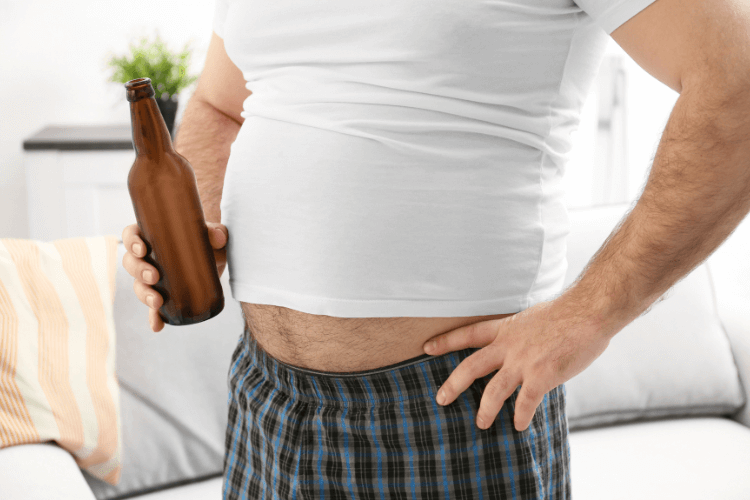The Hedonistlabs laboratory
Belly swelling is often linked to alcohol consumption. Although common, this phenomenon conceals complex mechanisms and health risks.
Why does alcohol make the stomach swell? Find out why and what to do about it.
Alcohol and Water Retention
Alcohol acts as a diuretic, dehydrating the body. To compensate, the body can retain more water, causing the stomach and other parts of the body to swell. Alcohol consumption also causes inflammation of the stomach and intestines, contributing to bloating.
Effects on the digestive system
- Irritation of the gastrointestinal mucosa Alcohol irritates the mucous membrane of the stomach and intestines, leading to inflammation and bloating.
- Altered intestinal flora Regular alcohol consumption can unbalance intestinal flora, encouraging the growth of harmful bacteria that produce gas and bloating.
- Decreased Nutrient Absorption Alcohol interferes with digestion and nutrient absorption, which can disrupt normal intestinal function and cause bloating.
Long-term consequences
A swollen belly due to alcohol can be a sign of more serious problems such as :
- Hepatomegaly Enlarged liver, often due to excessive alcohol consumption, can cause swelling of the abdomen.
- Ascites Fluid accumulation in the abdomen, often associated with liver disease such as cirrhosis.
- Irritable Bowel Syndrome (IBS) Alcohol can aggravate IBS symptoms, leading to bloating, abdominal pain and changes in bowel habits.
Strategies to Reduce Swelling
- Limiting Alcohol Consumption Reduce alcohol consumption to reduce irritation and inflammation of the digestive system.
- Hydration Drink plenty of water to help your body eliminate excess alcohol and reduce water retention.
- Healthy eating Eat foods rich in fiber and probiotics to restore the balance of intestinal flora.
- Regular exercise Physical activity can help improve digestion and reduce bloating.
- Consult a physician If swelling persists, it is important to consult a healthcare professional to assess the presence of underlying conditions.
Belly swelling associated with alcohol consumption is not only uncomfortable, but can also indicate more serious health problems. By understanding the mechanisms behind this phenomenon and adopting healthier lifestyle habits, you can reduce these symptoms and improve your overall well-being.
Sources :
National Institute on Alcohol Abuse and Alcoholism (NIAAA) - For detailed information on the effects of alcohol on the digestive system and water retention.
Mayo Clinic - For tips on managing bloating and information on the effects of alcohol on the body.
Journal of Gastroenterology and Hepatology - Academic publications on the impact of alcohol on intestinal flora and digestion.
World Journal of Gastroenterology - Studies on the mechanisms of gastrointestinal irritation and alcohol-induced inflammation.
Harvard Health Publishing - Articles on nutrition, hydration and the effects of alcohol on digestive health.





